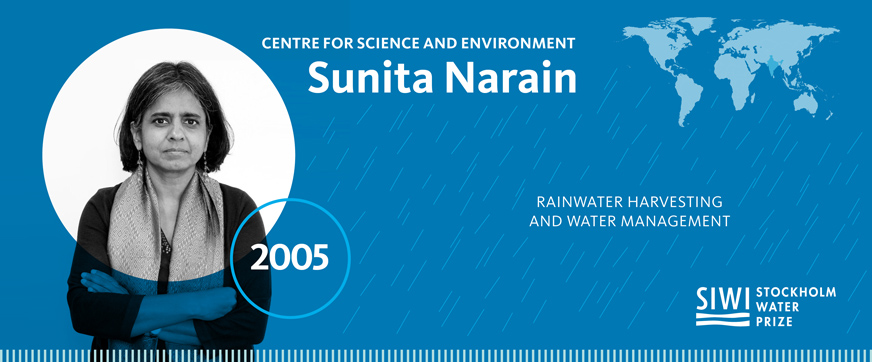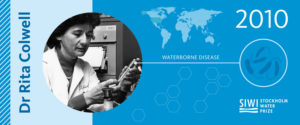- SIWI – Leading expert in water governance
- /
- Latest
- /
- Stockholm Water Prize: the supply is in the sky
Stockholm Water Prize: the supply is in the sky

Water has the power to turn a large part of the country’s currently parched lands into productive lands, reducing poverty and increasing incomes where it is needed the most. The challenge Sunita Narain set out to tackle is how to realize this potential in marginalized lands, in doing so she helped build a water-literate society and a movement which has the potential to change the water future of the world.
For 30 years, the world’s most prestigious water award, the Stockholm Water Prize, has honoured women, men and organizations for extraordinary water-related achievements. In 2005, the Centre for Science and Environment (CSE), under the directorship of Sunita Narain, was awarded the Stockholm Water Prize.
CSE’s work on rainwater harvesting has shown the many ingenious ways in which people learnt to live with water scarcity. The solution practised diversely in different regions, lies in capturing rain in millions of storage systems – in tanks, ponds, step-wells and even rooftops – and to use it to recharge groundwater reserves for irrigation and drinking water needs. As CSE’s rainwater harvesting website proclaims, “The supply is in the sky.” They published two books which triggered a rediscovery of traditional, practical and inexpensive techniques for rainwater harvesting which were at risk of being overlooked, undervalued, soon to be lost in favour of modernization.
CSE has shown through its advocacy that localised water management is a cost-effective approach and, more importantly, that local water management – harvesting and storing water where it falls – can only be done through community participation.
But CSE’s work hasn’t just been limited to water. The organization has tackled issues from global climate change to the scrutinizing of different Indian industries. Its goal has always been to distinguish itself in the global crowd of NGOs through its insistence on hard facts before rhetoric. This philosophy has given the Centre considerable social capital within civil society, politics and the media in the push for policy change.
Sunita Narain’s ideas have continued to shape some of the key debates of our time. A paper that she co-authored in 1991 remains to this day the foundational charter of the global climate-justice movement. She has long advocated for policies that recognize India’s forest dwellers and indigenous peoples as essential custodians of their environments.
Hers is a voice that urgently needs to be heard in this era of climate change.
Nominations are now open for Stockholm Water Prize 2021. Nominate your water hero here.







